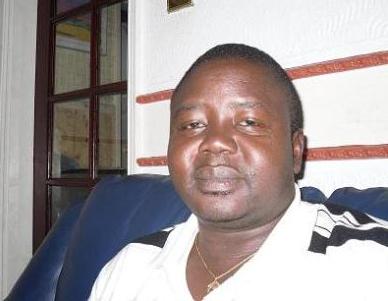Regime Change: Are You Watching George Bush?
Change is the essence of life. This is more so, if you are willing to surrender what you are for what you could become. It is also unquestionable, that if you can’t create change, change will create you. But sometimes, it is the smallest decisions that can change your life. So when unemployed Mohamed Bouazizi set fire to himself in desperation, little did anyone, least of all, the ousted President, Zine-al-Abidine Ben Ali know that it would mark the beginning of the end of his strangle hold on the Tunisian people. By all standards, setting himself alight was a desperate attempt, for even those with the conscience of a chain-saw. As a young unemployed man, with no Government assistance, little hope in cat’s hell to get a better life, all he wanted to do was sell vegetables in order to bring home the bacon. But when the officials prevented him from even fulfilling his basic obligation, to provide food for his family, he literally lost it, and with it, the will to live. As sad as it may sound, this one-man stance against a draconian regime was all it needed to set the wheels of change in motion. The major question now is, can anyone apply the handbrakes? What the world is seeing today might appear unprecedented, but a cursory look at the history of Tunisia will indicate some semblance dating back as far as 146 BC. This North African enclave has since witnessed its fair share of regime change; more often than not, by violent means. (Photo: Abdulai-Mansaray)
Since Carthage fell to the Romans in 146 BC, Vandals, Arabs, and Berbers had all taken turns to wrest power from one another until the Ottoman Empire was formed in the 1600s.The French, the Germans and Italians all became bed mates, with varying flavours of royalty until independence in 1956. Ousted President Ben Ali came to power in 1987, and until now had since manoeuvred himself on the political chessboard, to earn him a sixth term in office. The hall mark of his regime will be remembered by many Tunisians as the period of human rights abuses, no press or freedom of speech, nepotism and serfdom, to name a few. Enough of the history lesson on North Africa.
The key to change is to let go of fear, and this is exactly what the people of Tunisia have done. While other countries have enjoyed the beauty of the rule of law, albeit in varying degrees, Tunisia had wallowed in the political cesspit of the rule of fear. It took the desperation of one man, though many will say that it was of manic proportion, to break the shackles of fear and usher the change that had been craved for. Although it would be too early to judge the merits of this change, the realisation of the concept is a feat in itself. There is nothing wrong with change, if it is in the right direction.
There is a Mandingo saying that “ if they bury your fellow slave, it would be advisable to check that grave; for you may end up in a similar one” (translated) No wonder, regimes in neighbouring countries like Syria, Iran, Jordan, Yemen and Algeria are all quaking in their boots. When ousted Ben Ali sneezed, President Mubarak was the first man to catch the cold. The ongoing unrest in Egypt is a carbon copy of the bye products of governments that refuse to be accountable to their people. They would have done themselves a little favour if they had been a fan of late Bob Marley; “that you can fool some people some time, but you can’t fool all of the people, all of the time”. When the Tunisians saw the light, they got up, stood up, and stood up for their rights. Indications are that these people will not give up the fight (Had a moment there). With the reported death toll at 26 and still counting, Mubarak believes that sacking his cabinet will be a Van Gough- like master stroke of political artistry. You are wrong: the people of Egypt are telling you that 30 years of your rule is enough. Egyptians, like other Middle Eastern countries are losing fear of the regime. No wonder “Go, go, Mubarak go” and “the people need to end this regime” is the chart topping chorus on the streets, suburbs and backyards of Egypt today.
The political tornado that is sweeping the Middle East region has not escaped its share of ironies and dilemma. This is more so, when juxtaposed with the battles that are being fought in Afghanistan and Iraq. In Afghanistan, it was about destabilizing the Taliban group and preventing a safe haven for Al-Qaeda; following 9/11. In Iraq, it started with the elusive search for weapons of mass destruction, which by some semantic gymnastics became “regime change”. The common denominator here was that, for the western world to sleep easy at night, it needed these countries to have trustworthy leaders who would not be overrun by fanatics. Although a fair share of these exists, Iraq and Afghanistan were explosive. It was therefore not surprising that explosives were required to enforce regime change. The irony is that, it took billions of dollars, B-52 stealth bombers, laser guided missiles, drones, Chinook helicopters, aircraft carriers and the unenviable large loss of lives, to effect regime change in these two countries. In Tunisia, without being simplistic, it took 2 dozens of apples, some carrots, a basket of melons, 14 cucumbers and one man’s desperate bid to provide for his family, to set the wheels in motion, to bring down a whole government regime change.
Like the harmattan breeze, the sense of change that is sweeping across the Middle East will undoubtedly cause sleepless nights along the corridors of The White House, Palais de l’Elysee, Downing Street and 225 Broadway NY(UN Building). No wonder, the comments coming from these buildings have been tempered with caution, and the need for peaceful protests and dialogue have been the clarion call. Although the writing had been on the wall, as we saw with the post election riots in Iran last year, the single most contributing factor for this torrent of uprising could be attributed to power of the people’s media. Since time immemorial the political rulers have been able to manage and manipulate the media. News as we know it, have been run by governments and dished out on prescription.
The information highway is fast becoming gridlocked with information outlets like Facebook, Twitter, mobile phones, Bluetooth, Youtube and many others. These governments have lost the power to surgically sanitise the news. Anybody with a mobile phone is a potential reporter, journalist or news crew. News is now broadcast in real time. They say that a picture is worth a thousand words. In Tunisia, it took only a few sound less footages to keep the spirit of the uprising. Even when countries like China and most recently Egypt try to put up road blocks on the information super highway, geeks have found diversions and detours to get the message out.
Information is knowledge and knowledge is power. It is this loss of power to control the information that may have contributed, to a large extent, to this seismic reading on the political Richter scale. The government TV and Radio stations are no longer the barometers of society or thermometers of public opinion. “People are difficult to govern because they have too much knowledge”; Lao-tzu (604 BC-531 BC). However, if knowledge can create problems, it is not through ignorance that we can solve them.
Change has a considerable psychological impact on the human mind. To the fearful, it is threatening because it means that things may get worse. To the hopeful, it is the encouraging because things may get better. To the confident, it is inspiring because challenge exists to make things better”. The political metamorphosis that is taking place will undoubtedly create some political vacuum. The question is who will fill them. As we saw in Egypt, fanatic Muslims had already laid siege to their Christian kindred; a precursor to the current uprising. With their overwhelming influence in the Egyptian political playground, you could be excused to be fearful, should they become the main power brokers on political chess board.
This is the dilemma that will be gnawing at the brains of Western Politicians as the winds of social engineering blow across the Middle East. In spite of all the pressure, Mubarak had kept Hamas and other freedom activists at bay. The impasse between Israel and the Palestinian people has continued to provide fuel for their actions. Many see their leaders as betraying the Palestinian cause because they chose the routes of dialogue, as answer to the Palestinian question; than their preferred tit-for-tat violence. With such proximity, if the Mubarak regime should collapse, many leaders on this side of the Atlantic would wish for an Israel -friendly regime.
Though change would be welcome to many, others may be having second thoughts about the potential for power to fall in the wrong hands. To make it more complicated, the revolutionary nature of these changes will leave little room for a structured arrangement. Any replacement, like a flat bed, would be a hastily constructed phenomenon. Many would be thinking that it is better the devil you know than the angel you don’t know. Others will beg to differ; take your pick. One thing is certain though; “Change is inevitable, except from a vending machine”.
Abdulai Mansaray
Stay with Sierra Express Media, for your trusted place in news!
© 2011, https:. All rights reserved.






